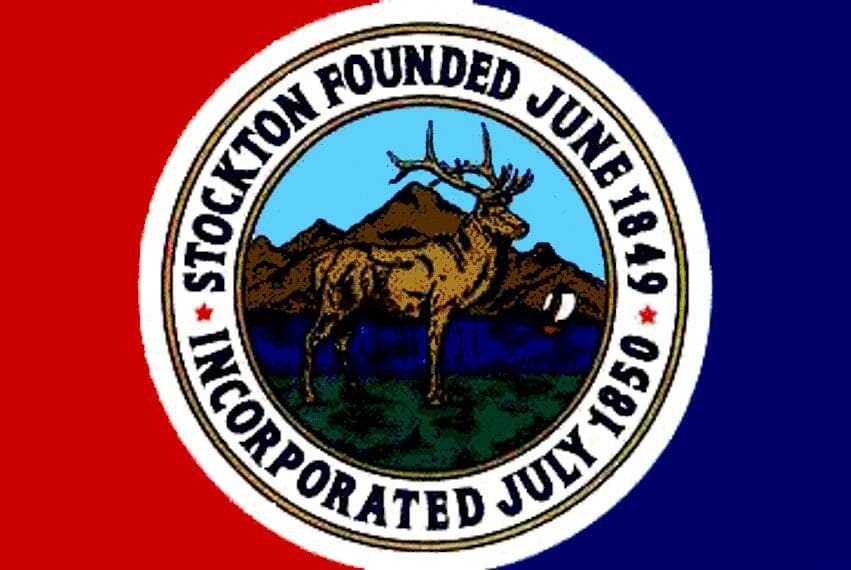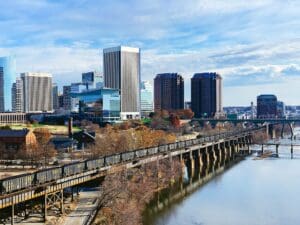Stockton has been testing a universal basic income since 2019 — it’s working
The Stockton Economic Empowerment Demonstration, a program funded exclusively through donations, has been giving 125 randomly selected Stocktonians $500 a month.
In January 2020, Tomas Vargas Jr. transitioned into a new job with better pay and benefits. In March, due to COVID-19, Tomas lost this job and became one of the nearly 43 million Americans who have applied for unemployment in recent weeks.
Unlike most Americans, however, Tomas has been receiving a guaranteed income of $500 per month since February 2019. He’s used this unconditional cash on food, rent, and other bills. He’s also leveraged this income floor to give back to his community by providing free car repair services to essential workers and donating supplies to the local fire station. Tomas’s story is just one example of how a guaranteed income can provide us a solid economic foundation, especially during pandemics.
The Stockton Economic Empowerment Demonstration, a program I initiated and is funded entirely through private donations, has been giving 125 randomly selected Stocktonians $500 a month. Even before the pandemic, recipients like Tomas were spending the $500 on their basic needs: food, utilities, transportation, electricity, and rent. Data from February and March 2020 highlight how receiving unconditional cash has enabled people to follow stay-at-home advisories: spending on sales and merchandise decreased, while food-spending peaked in March at 46.5 percent of all overall tracked spending.
COVID-19 has shed light on the vast economic insecurity that plagues this country. Pre-coronavirus, 40 percent of Americans were just one emergency away from financial ruin, and people were working two or three jobs yet still couldn’t afford the basics. Now the unemployment rate has spiked to 13.3 percent; 20.5 million jobs were lost in April alone, and lines at food banks are miles long.
COVID-19 isn’t hurting everyone equally. Black and brown Americans are caught in a double bind, overrepresented both in the low-wage jobs most vulnerable to layoffs and in the jobs deemed most essential. Latinx people constitute 64 percent of agricultural workers, while Black people account for 30 percent of licensed practical and licensed vocational nurses. And no one bears a greater burden than women, who make up the majority of all essential workers while still performing the unpaid care work that keeps the economy afloat.
It is essential that we stand with these workers and their families, one in three of whom live in a household that earns less than $40,000 a year. These workers are battling on the front lines yet lack access to protections like health benefits, paid sick leave, and hazard pay. They deserve the peace of mind that comes from knowing that, after all their essential work, there’s enough money to pay for the essentials to live.
Economic insecurity is, in and of itself, a pandemic, compounded this year by COVID-19. But next year it will be an earthquake, a flood, or another disastrous fire season. And, again, it will be those already most marginalized who are most affected. We must weather this crisis and emerge from it better by implementing a guaranteed income. As my mother says, if we stay ready, we won’t have to get ready.
Stockton has paved the way and is proving the case for recurring, unconditional cash, and national leaders are following our example. Most recently, US Senator Kamala Harris of California joined forces with Senator Ed Markey of Massachusetts and Senator Bernie Sanders of Vermont to introduce a bill providing a recurring, monthly payment of $2,000 to those making less than $120,000 — working-class families. The payments, retroactive to March and lasting three months after the public health emergency, would be delivered regardless of whether people have a social security number filed with their 2019 taxes. New polling shows bipartisan support for monthly payments, with a majority of Americans thinking that a one-time payment just isn’t enough.
Combined, these proposals and polls send a clear message: Economic insecurity isn’t a partisan issue; it’s not an East Coast vs. West Coast issue; not an “us vs. them.” The last economic disruption of this scale was met by a radical extension of the social safety net. This is our New Deal moment, and we must meet the demands of the time by updating our social contract and implementing a guaranteed income.
Michael D. Tubbs is the mayor of Stockton, Calif.





















